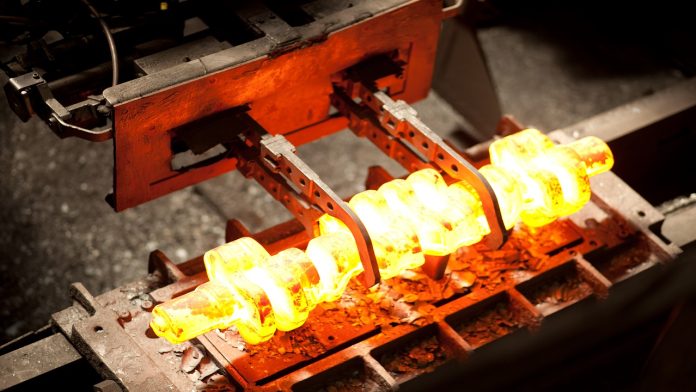When you rev up your car’s engine or hear the roar of a high-performance vehicle, have you ever wondered what makes it all possible? At the core of every internal combustion engine are critical forge parts that play a pivotal role in converting the controlled chaos of combustion into mechanical power, and the crankshaft is a key element in this process. In this article, we’ll delve deep into the world of crankshafts, exploring their significance, manufacturing process, and why they are often considered the beating heart of engines.
The Role of Crankshafts
Before we dive into the intricacies of crankshaft forging, it’s crucial to understand the central role this component plays in an engine. The crankshaft is, in essence, the backbone of any engine, responsible for transforming the linear motion of the pistons into the rotational motion required to turn the wheels. It accomplishes this feat by converting the reciprocating motion of the pistons into a rotary motion that powers the drivetrain.
Crankshafts come in various designs, from simple single-cylinder engines to complex multi-cylinder configurations found in high-performance vehicles. Regardless of the engine type, the crankshaft’s primary function remains the same: to transmit power from the pistons to the wheels, allowing your vehicle to move forward.
Forging Crankshafts: The Superior Choice
Now that we understand the significance of crankshafts let’s explore why forging is the preferred manufacturing method for these critical engine components. Forging, particularly die forging, is considered the gold standard when it comes to producing crankshafts. Why? Here’s why forging reigns supreme:
Superior Strength and Durability
The forging process imparts exceptional strength and durability to crankshafts. During forging, the metal’s grain structure aligns with the component’s contours, resulting in a part that is significantly stronger than its cast or machined counterparts. This strength is crucial, as crankshafts endure tremendous stress and rotational forces within the engine.
Resistance to Fatigue and Impact
Crankshafts face constant stress, especially in high-performance engines. Forged crankshafts exhibit excellent resistance to both fatigue and impact, ensuring they can withstand extreme conditions within the engine over extended periods. This resilience is essential for engine longevity and performance.
Reduced Porosity and Voids
Unlike casting, forging produces crankshafts with minimal porosity and voids. This means there are fewer weak points or potential failure sites within the component, further enhancing its reliability.
Material Versatility
Forging can be employed with a wide range of metal alloys, including carbon steel, alloy steel, aluminum alloy, and stainless steel. This versatility allows manufacturers to tailor crankshafts to meet specific performance and design requirements.
Near-Net Shape Production
Die forging can produce crankshafts with near-net shapes, reducing the need for extensive machining. This not only saves time but also lowers production costs, making forged crankshafts a cost-effective choice.
Forged Crankshafts for the Future
As the automotive industry evolves towards more sustainable and electric alternatives, the importance of forging in manufacturing crankshafts remains undiminished. While electric vehicles may have simpler designs, the demand for high-strength, lightweight components like crankshafts persists. Forged aluminum alloy crankshafts, in particular, offer an excellent balance between performance and cost-effectiveness for these emerging vehicles.
Conclusion
When it comes to the heart of engines, there’s no substitute for the strength, durability, and reliability of forged crankshafts. These precision-engineered components play a pivotal role in powering our vehicles, whether they run on traditional fuels or the electricity of the future. As technology advances and the automotive landscape continues to change, one thing remains constant: forging crankshafts is essential to drive us forward into a new era of transportation. So, the next time you hit the road, remember the unsung hero beneath your hood, silently forging your journey ahead.







